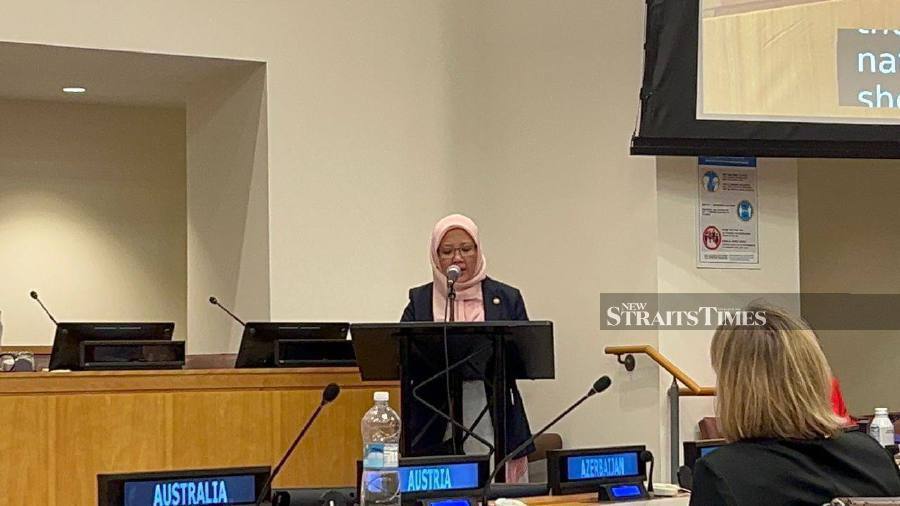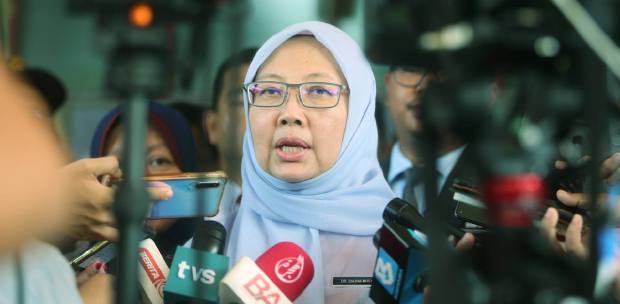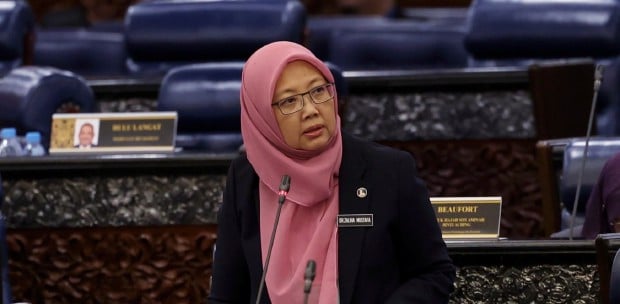UNITED NATIONS, New York: Malaysia on Wednesday underscored the vital role of digital technology adaptation and international cooperation in strengthening global pandemic preparedness.
Health Minister Dr Zaliha Mustafa spotlighted this in her remarks at the High-Level Meeting on the Pandemic Prevention, Preparedness and Response, offering a roadmap for countries seeking to enhance their pandemic preparedness.
She shed light on Malaysia's successful use of digital technology in public health as a significant tool to curb the transmission of the virus during the Covid-19 pandemic.
"Digital technology has evolved into an invaluable ally in our quest to safeguard public health."
"The pandemic helped to accelerate digital transmission and created a landscape that will continue to encourage innovation and technological adoption.
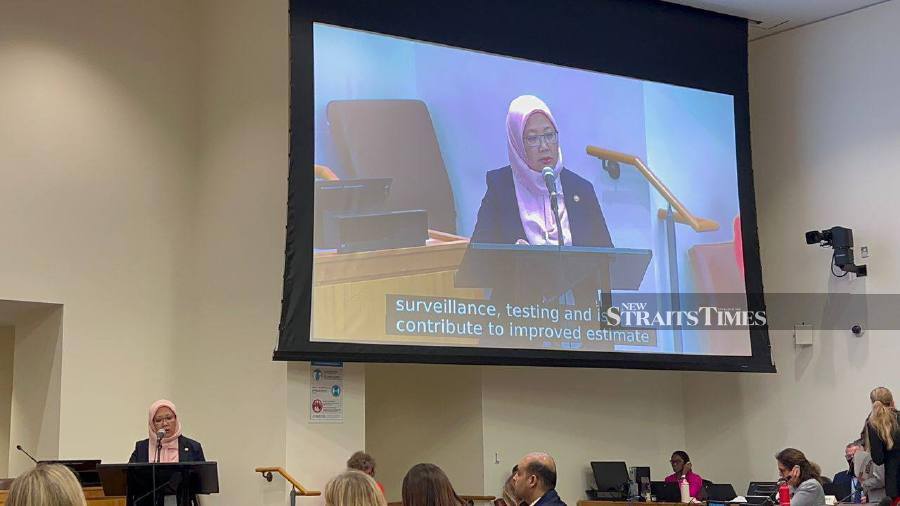
"Thus, Malaysia will continue to utilise digital technology to provide support, medical consultations, healthcare services, to track the spread of pathogens, contact tracing, and monitoring of infectious diseases," she said.
Also Read:
UNGA78: WHO chief hails 'historic milestone' in global effort to avert future pandemics
Dr Zaliha also emphasised the cornerstone of effective pandemic response — readiness.
"It is evident that managing a pandemic provides opportunities for future readiness.
"Governments and communities can be better prepared to handle future pandemics by using the lessons learned from the Covid-19 pandemic."
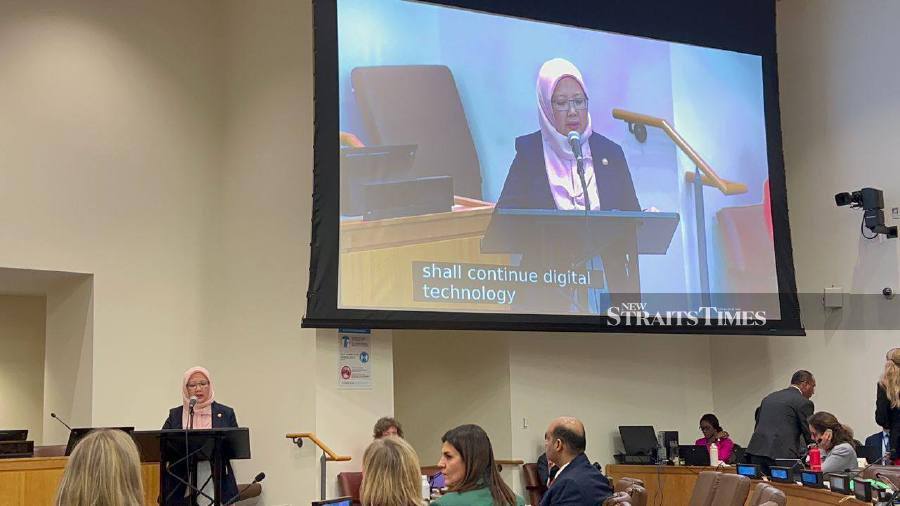
She advocated for a continual commitment to refining standard operating procedures, guidelines, surveillance, and responses across all levels to bolster national preparedness for impending health crises.
She further emphasised the significance of regular national and subnational exercises to ensure countries' resilience in the face of emerging health threats.
Dr Zaliha also underscored the importance of conducting after-action reviews following pandemic responses, serving as invaluable blueprints to inform Malaysia's pandemic preparedness strategy by revealing strengths and areas requiring improvement.
Acknowledging the diverse capabilities, objectives, and priorities of each member state, Dr Zaliha advocated for a balanced approach that aligns available resources with public health goals.
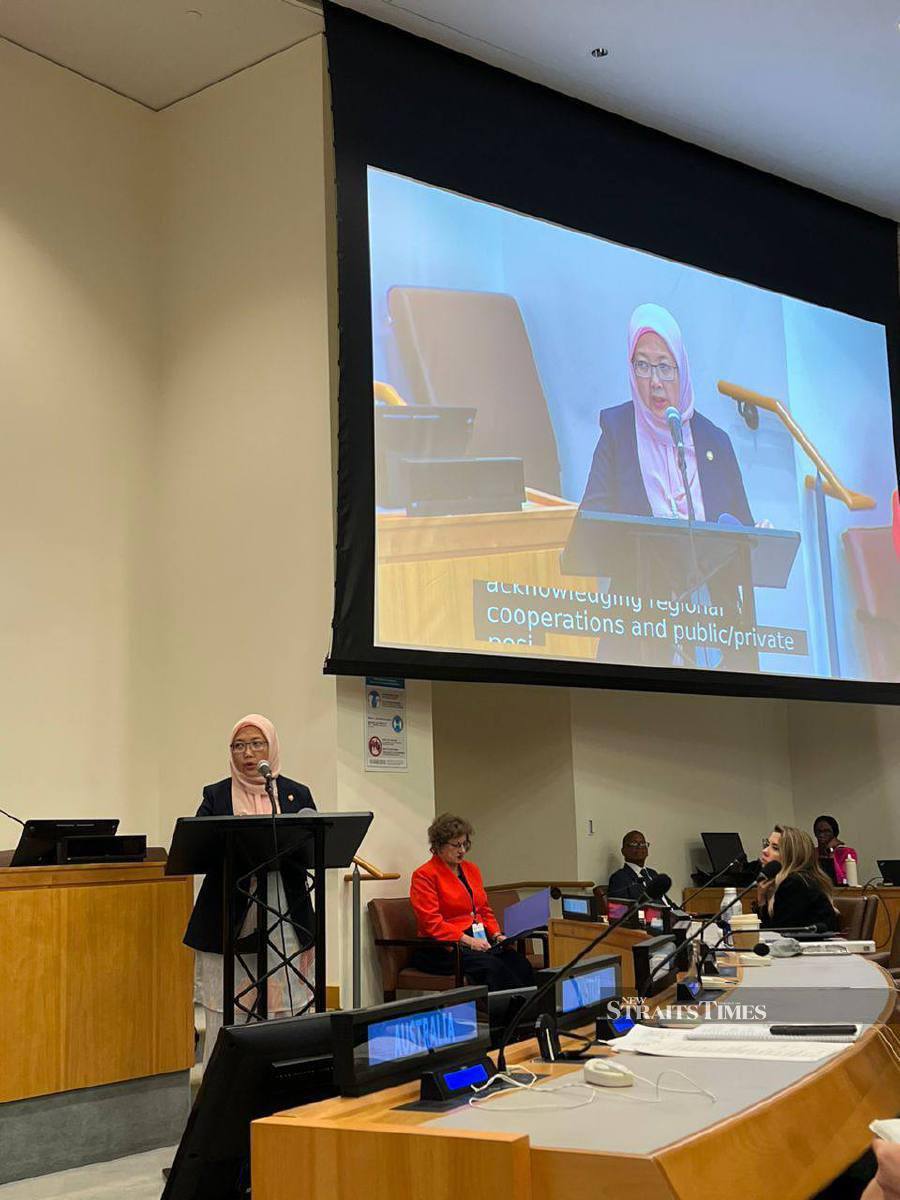
She praised the adoption of multi-source surveillance, which offers a comprehensive perspective on a population's health, instills confidence in decision-making, and enriches public health responses.
"It is crucial to recognise the limitations of case-based surveillance testing.
"Additional surveillance methods, including alternative or unconventional data sources like environmental surveillance, can circumvent the constraints of case-based surveillance testing and contribute to more precise estimates of disease transmission."
The Health Minister concluded her address by acknowledging the importance of regional cooperation and public-private partnerships in ensuring sustainable, shock-resistant, equitable, and quality health services to prepare for future pandemics.
NST specialist writer Tharanya Arumugam is a 2023 fellow of the United Nations Reham Al-Farra Memorial Journalism Fellowship.


